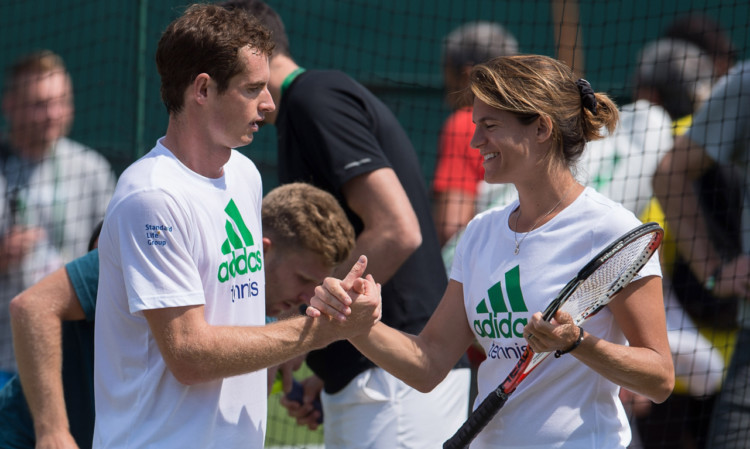Andy Murray has made it through to the second round at Wimbledon, despite hiring a female coach.
The Scottish tennis champ, who last year became the first Briton to win the coveted men’s singles title in 77 years, was not expected, by some, to progress far in this tournament after his appointment of Amelie Mauresmo.
Although there are many excellent female tennis players, they do not seem to be well regarded on the circuit. Mauresmo, a former Wimbledon winner herself, is the only woman to coach a man in the top 100 seeded players, and has attracted quite odious criticism.
The Australian Marinko “Mad Dog” Matosevic said he couldn’t take orders from a female because “I don’t think that highly of the women’s game”. And the Latvian Ernests Gulbis joked that he’d wait for good-looking players, such as Maria Sharapova, to quit so that he could have a new coach too.
This sort of reaction is perhaps predictable from two men yet to make their mark as Murray has done, but even women, who should know better, are horrified by Mauresmo’s high-profile role.
Virginia Wade, successful in her own right many moons ago, had a “you cannot be serious” moment when she heard the news. “I thought they were all fooling around,” she said.
Maybe, she suggested with breath-taking condescension, the Wimbledon champion just needed someone there to say “well done”.
It obviously hasn’t occurred to Wade, or the others, that Murray may have wanted a grass court specialist and chose Mauresmo because she was the best person for the job. If her gender made any difference to him at all it was surely a positive one, given his background.
For, unusually in the unreconstructed world of tennis, where until quite recently women’s prizes lagged behind men’s, Murray has no issue with female authority figures. This, of course, is not unconnected to his mother.
Judy Murray will sympathise with her son’s new coach who she says is “great” because she has had to put up with more than her fair share of insults. These have either centred on her absence from her sons’ childhood, following her divorce, or her omnipresence at their matches. Like British male tennis players (until Andy), she just can’t win.
Judy believes her detractors Boris Becker, for example call her pushy because she is a woman. “I think if I were the dad of sons, I wouldn’t have been noticed,” she said.
In fact, as pushy parents go, she ranks pretty low. The father of Lang Lang, the superstar Chinese pianist, told his nine-year-old son he might as well kill himself after he displeased his teacher. The mother of violinist Maxim Vengerov made him practise after dinner, sometimes until 3 o’clock in the morning, from the age of four.
The Murray boys had a slightly more normal upbringing, but there is no doubt their mother was competitive and that her driving ambition shaped their characters.
Jamie Murray, also a tennis player, said it wasn’t a big deal for his brother to have a female coach as “for most of his life that’s what he’s had”.
Judy has been there throughout her sons’ careers when they needed her, suffering the kind of Centre Court anxiety that ordinary spectators cannot imagine.
As she said on Desert Island Discs on Sunday, it gets worse as the expectations increase. Watching Andy or Jamie play is “a combination of a heart attack and severe nausea but I try not to show it”.
Who would not want a mum like that on their side?
More than her professional influence, though, Judy Murray has instilled in her sons a healthy respect for strong women the only problem being that she was a hard act to follow. Until now.
Murray thinks he has found someone to take his game to the next level and hopefully he will be proved right over the next few days.
When he crashed out of Queens earlier this month, he was quick to blame himself, conscious perhaps of the undercurrent of chauvinism directed at Mauresmo.
He insists his coach should be judged on tennis not gender, and she will be, but only if he wins Wimbledon again.
